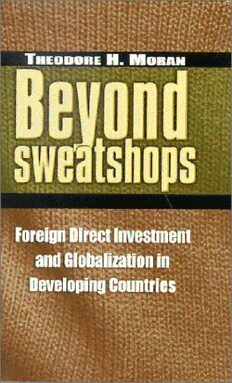
Beyond Sweatshops: Foreign Direct Investment and Globalization in Developing Nations PDF
205 Pages·2002·0.732 MB·English
Most books are stored in the elastic cloud where traffic is expensive. For this reason, we have a limit on daily download.
Preview Beyond Sweatshops: Foreign Direct Investment and Globalization in Developing Nations
Description:
Images of sweatshop labour in developing countries have rallied opponents of globalization against foreign direct investment (FDI). The controversy is most acute over the treatment of low-skilled workers producing garments, footwear, toys and sports equipment in foreign-owned plants or the plants of subcontractors. Activists cite low wages, poor working conditions and a variety of economic, physical and sexual abuses among the negative consequences of the globalization of industry. This volume examines the impact of FDI in manufacturing on growth and welfare in developing countries, and explores how host governments can take advantage of the contributions of foreign investment while avoiding hazards to lower-skilled workers.
See more
The list of books you might like
Most books are stored in the elastic cloud where traffic is expensive. For this reason, we have a limit on daily download.
